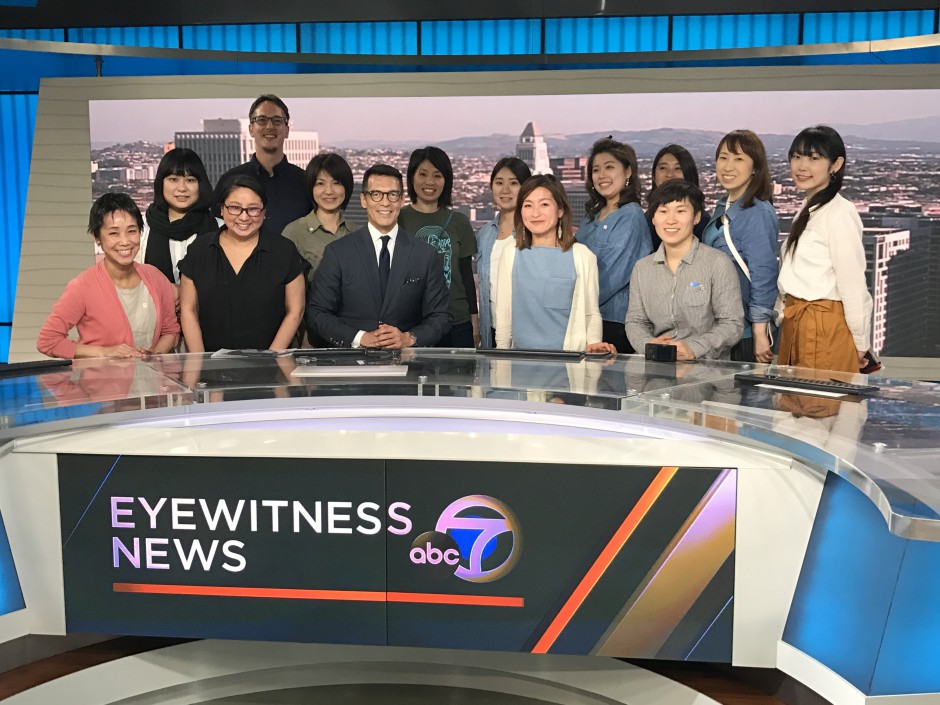東北3県の若手女性リーダー10 名が1週間のロサンゼルス起業家研修から帰国、日米の草の根の学びを地元へつなげる
2018年2月4日から1週間にわたり、TOMODACHI東北グラスルーツ・リーダーシップ・アカデミーがカリフォルニア州ロサンゼルス市で実施されました。東日本大震災の津波の被害があった東北3県の市町村から選出された参加者10名は、ロサンゼルスの起業家、NPOリーダー、企業役員、草の根リーダーたちから困難を乗り越え、イノベーションを起こし、継続していく方法を学びました。また、若い女性の視点からの震災の経験と学びをロサンゼルス市役所、地元テレビ局、大学、赤十字などで共有しました。
プログラム中には、APTIM社長 米日カウンシル理事会役員 デービッド・ブーン氏がリーダーシップのワークショップを行いました。ワークショップでは、30年間の海軍での経験や、その後の大企業のマネージメントから、リーダーシップと困難に立ち向かうレジリエンスについて学びました。リーダーシップを、人を率いるという狭い概念ではなく、自身の人生を「自分でコミットして(責任を持って)」生きるための取り組み方や枠組みを学び、参加者それぞれが、人生を振り返り、人と建設的な関係性をつくるためのコミュニケーションの方法も練習しました。
その他にも、ベンチャー・キャピタリストのトレーシー・グレイ氏はじめ、現地の著名な若手リーダーたちとのパネルディスカッション、プロモーターと呼ばれる低所得地域で活躍する移民女性リーダーたちとの会談、オクシデンタル大学の学生との意見交換などを行いました。また、ハリウッドの抱える課題を、実際に地域を歩いてコミュニティーのリーダーたちから話を伺ったり、米日カウンシル南カリフォルニア支部主催のディナーでは小グループに分かれて交流を深めました。
 福島県二本松市でオーガニック農業の会社を経営する菅野瑞穂氏は、「今回出会った人に共通するパッション、自分を知る、伝える力など、事業を継続いするためには、何が大切かを考える転機になった」と話しました。岩手県陸前高田市で若い母親の活動を支援する板林恵氏は、「コミュニティーの人たち自身がリーダーとして自信を持つことで、コミュニティー自体のパワーとレジリエンスが作り出されることを実感し、自分の地域に持ち帰ります」と感想を述べました。
福島県二本松市でオーガニック農業の会社を経営する菅野瑞穂氏は、「今回出会った人に共通するパッション、自分を知る、伝える力など、事業を継続いするためには、何が大切かを考える転機になった」と話しました。岩手県陸前高田市で若い母親の活動を支援する板林恵氏は、「コミュニティーの人たち自身がリーダーとして自信を持つことで、コミュニティー自体のパワーとレジリエンスが作り出されることを実感し、自分の地域に持ち帰ります」と感想を述べました。
最終日の午後は、参加者それぞれの学びを共有し、プログラムを振り返りました。本プログラムを通した学びは、4月までに東北各地で開催される報告会を通して様々な地域で共有されます。



